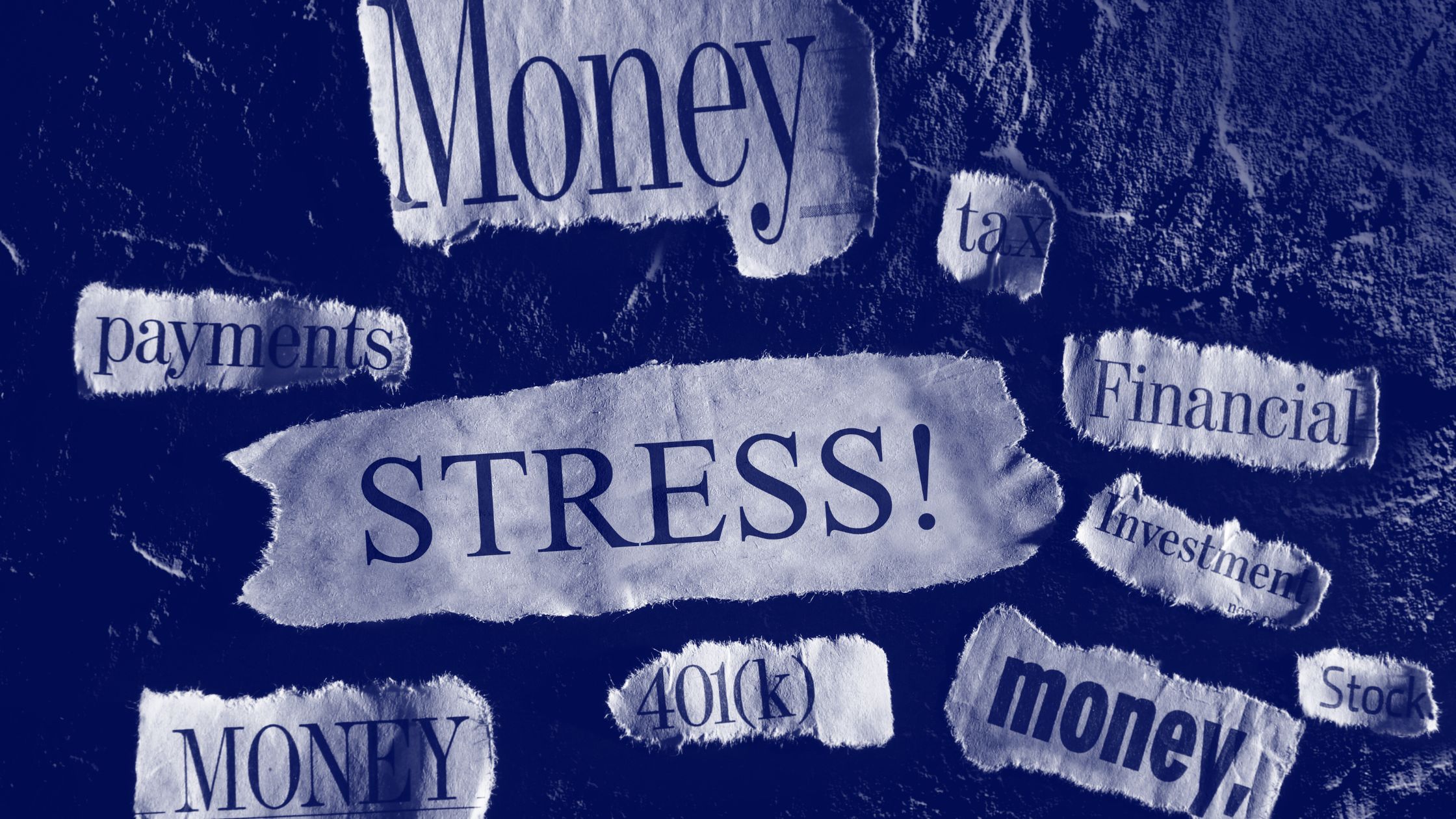
Financial Stress Awareness
Financial stress is pervasive across the U.S., with nearly 88% of Americans feeling some level of financial strain, and 65% citing it as their top stressor. Younger generations report particularly high anxiety levels, with 62% of Gen Z experiencing financial stress three or more days a week.
Rising costs and everyday expenses are key contributors to the growing financial stress Americans say they experience, admitting to sacrificed mental well-being, and symptoms like sleep loss and headaches. These statistics underscore a substantial and growing challenge for many, impacting mental and physical health nationwide. In the face of these overwhelming statistics, I wanted to offer a disciplined, practical approach for how to tackle financial stress. I believe that anyone can regain control over their finances, so don’t stress, just get started!
Tackling Financial Stress Head On
Financial stress often stems from spending issues. The first step to tackling it is to be honest about where your money is going. A lot of people feel overwhelmed because they’re spending in ways that don’t align with their long-term goals. Facing this head-on may feel daunting, but it’s the key to real change.
To help ease the anxiety of managing money related to spending, consider a “48-hour rule” for non-essential purchases. When you feel like buying something, give it 48 hours. This approach not only helps curb impulse spending but also creates a habit of thoughtful decision-making, which reduces financial stress over time.
Empowering Yourself Through Knowledge and Automation
For those looking to take control of your personal finances I advise tracking spending with tools like Quicken or even those offered directly from your banking institution or credit card company. I cannot emphasize enough the importance of knowing your inflows and outflows. Tracking spending builds awareness, and awareness leads to control. When you’re clear on what’s happening with your money, you can make better decisions and start to feel more in control of your financial future.
Automation can also help you breathe a sigh of relief! For example, look into setting up automatic withdrawals into a savings account. If it’s not in your main account, you’re less likely to spend it. Setting up automatic transfers from your paycheck directly into a savings account is a simple but powerful way to build savings effortlessly. When you ‘pay yourself first,’ you’ll hardly notice the money is gone—yet it grows steadily over time.
Automation helps you save consistently without constant effort, which lowers stress and lets you focus on the bigger picture. If you’ve been following me for awhile, you know I have mixed views on emergency funds, however, I cannot ignore their value for mental peace. An emergency fund might not be the best financial move in terms of growth, but it’s often worth it for emotional security. A cushion can act as a stress buffer, helping you sleep easier knowing you have a backup plan.
Mental Health and Money: An Overlooked Connection
As someone who cares deeply about mental health and wellness, it is no secret that financial stress has a serious impact on mental health. The best thing to do? Talk about it! Let’s have open discussions on the subject. Look, mental health is deeply connected to financial health. Talking about financial anxiety, (especially among male professionals who are often less likely to do so), can break down the stigma. Acknowledging stress isn’t a sign of weakness; it’s a step toward making real changes.
Staying Calm in Market Swings
Part of the reason I started the Everything Money channel, was because I was passionate about teaching investors of all experience levels the proper mindset, emotions and process it takes to be a value investor. Market swings are inevitable. How you respond to them can make all the difference in financial stress levels.
For investors feeling the pinch of volatile markets, focus on long-term goals rather than daily stock fluctuations. I buy solid companies, and I don’t watch their stock price every day. Stocks are about long-term growth. If you trust the fundamentals, give them time to work for you. Avoiding the urge to check daily can help you stay calm and keep your stress in check.
Practical Advice for Financial Peace of Mind
For anyone feeling the weight of financial stress, I encourage you to embrace practical habits and a disciplined mindset. Start small and celebrate the “little wins”. Over time, following a disciplined framework will transform financial stress into confidence and control.
Building financial resilience isn’t just about managing money; it’s about feeling empowered to approach life’s challenges with clarity and confidence. Remember, while financial stress may be unavoidable, financial peace of mind is achievable—one disciplined choice at a time.
Was this information helpful?
You might also enjoy this post where I share my thoughts on how new investors can understand the stock market.
